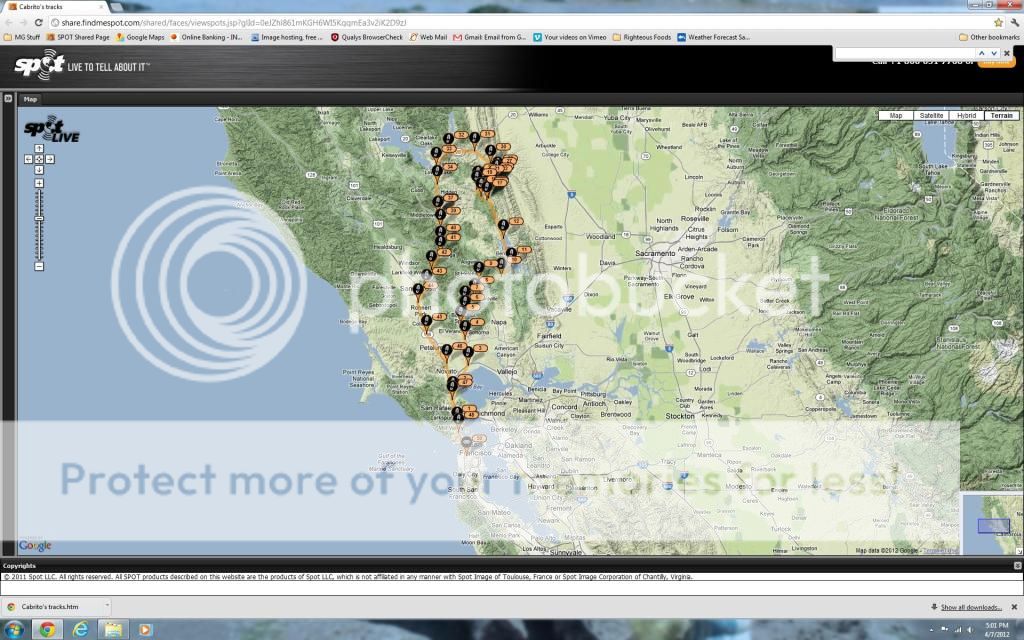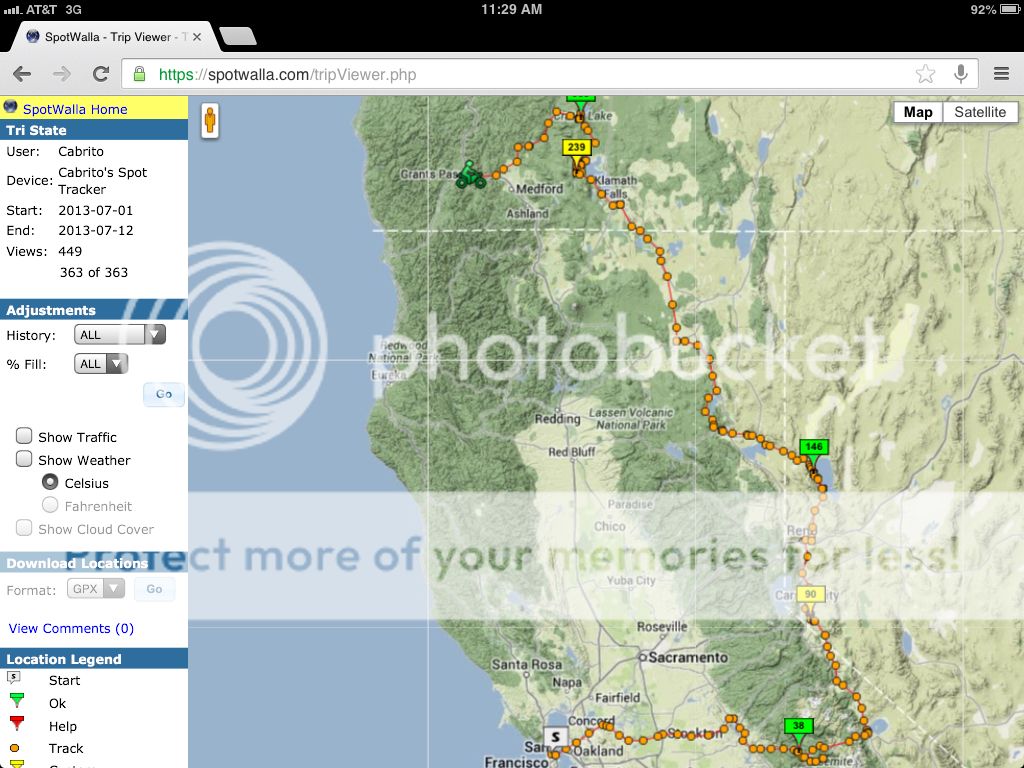The third generation of SPOT, the satellite-based GPS tracker and messaging device, has arrived. The new model has better battery life, plus an feature that updates your location only when you're on the move.
http://www.findmespot.com/en/
the SPOT Gen3 device costs $149, and a yearly service contract costs an additional $149. That's a lot of security for less than a dollar a day. The SPOT web site includes stories of people who were rescued by activating their SPOT. Most rescue situations started out as normal outdoor activities, rather than some risky enterprise.
Looking at the SPOT coverage map, there are gaps in southern Argentina and Chile, and in far northern Alaska, Canada and Russia. Otherwise, you're in view of the GlobalStar comm satellites.
http://www.findmespot.com/en/
the SPOT Gen3 device costs $149, and a yearly service contract costs an additional $149. That's a lot of security for less than a dollar a day. The SPOT web site includes stories of people who were rescued by activating their SPOT. Most rescue situations started out as normal outdoor activities, rather than some risky enterprise.
Looking at the SPOT coverage map, there are gaps in southern Argentina and Chile, and in far northern Alaska, Canada and Russia. Otherwise, you're in view of the GlobalStar comm satellites.



